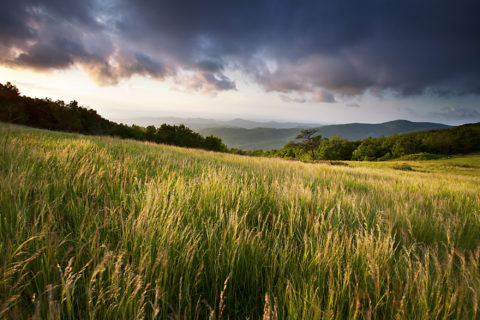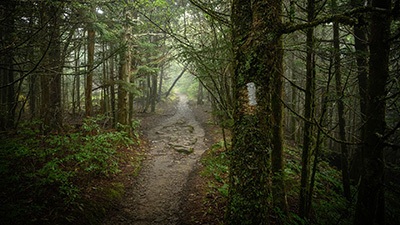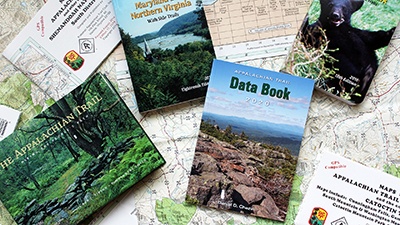Calling for a ‘Fair and Transparent Process’ in Siting Gas Pipelines
The ATC and 30 Trail-Maintaining Clubs register strong comments with the F.E.R.C.
June 26, 2018
HARPERS FERRY, W.Va. (June 26, 2018) – The Appalachian Trail Conservancy (ATC) and 30 trail-maintaining clubs representing nearly 6,000 volunteers are calling on the Federal Energy Regulatory Commission (FERC) to substantially improve the review process for siting natural gas pipelines.
The ATC’s comments, bolstered by the support of thousands of volunteers, were filed in response to FERC’s decision to revisit the 1999 Natural Gas Policy Statement and solicit public comments. The comment period ended June 25, 2018.
The Conservancy’s position is intended to guide improved FERC policies on future gas pipelines. Several of ATC’s recommendations pointedly reference significant problems with Mountain Valley Pipeline (MVP), a 300-mile natural gas pipeline which FERC recently approved and is currently under construction.
“Mountain Valley Pipeline is an unfortunate illustration of why FERC’s review processes need to be greatly improved,” said Laura Belleville, ATC’s vice president of conservation and trail management programs.
MVP begins in West Virginia, extends through the mountains of southwestern Virginia and parallels the Appalachian National Scenic Trail (A.T.). The damage from this pipeline — deep cuts in the wooded mountainside — can be seen intermittently for 90 miles along the A.T. Multiple iconic viewpoints on the A.T. in Virginia will be negatively impacted. The pipeline has fueled strong public opposition and several lawsuits. On June 21, a federal appeals court issued a stay of permit in West Virginia, delaying construction.
“FERC ignored the protections provided to congressionally designated lands, disregarded the obvious problems in laying a pipeline on steep slopes through an active seismic zone and discounted personal strife as the pipeline’s route took over private property,” said Belleville. “Moreover, FERC did not evaluate if this pipeline could have been co-located within a corridor used by other pipeline companies. Many of the issues regarding MVP might have been avoided if FERC had made certain that guidelines under the National Environmental Protection Act (NEPA) had been followed.”
According to Belleville, the pipeline company was allowed to add over 20,000 pages of documents to their plans on the FERC website months after the deadline for public comments and without providing context.
The bungled process led Virginia Republican Congressman Morgan Griffith and Democratic Virginia Senators Tim Kaine and Mark Warner to file bi-cameral legislation (H.R. 2893 and S.1314) to addresses how FERC appropriately sites natural gas pipelines. The legislation improves public processes and addresses how National Scenic Trails and U.S. Forest Service management plans need to be evaluated.
The ATC and 30 trail clubs are supportive of the legislation and, through the public comment process, have made four major recommendations to FERC which ask that the agency to weigh the impacts of energy development on regional non-energy businesses; document that the pipeline is needed; consider established and proposed pipelines within a region to fully evaluate cumulative impacts and opportunities to co-locate; and commit to a fair and transparent process.
The Conservancy has a history of working with energy developers to appropriately locate infrastructure with minimal impact on the A.T. For more information, visit www.appalachiantrail.org/MVP.
About the Appalachian Trail Conservancy:
The ATC was founded in 1925 by volunteers and federal officials working to build a continuous footpath along the Appalachian Mountains. A unit of the National Park System, the A.T. ranges from Maine to Georgia and is approximately 2,190 miles in length. It is the longest hiking-only footpath in the world. The mission of the ATC is to preserve and manage the Appalachian Trail – ensuring that its vast natural beauty and priceless cultural heritage can be shared and enjoyed today, tomorrow, and for centuries to come. For more information, visit www.appalachiantrail.org.
Media Contact: Jordan Bowman
Appalachian Trail Conservancy
Tel: 304.885.0794
Email: jbowman@appalachiantrail.org
Facebook: www.facebook.com/ATHike
Web: www.appalachiantrail.org





